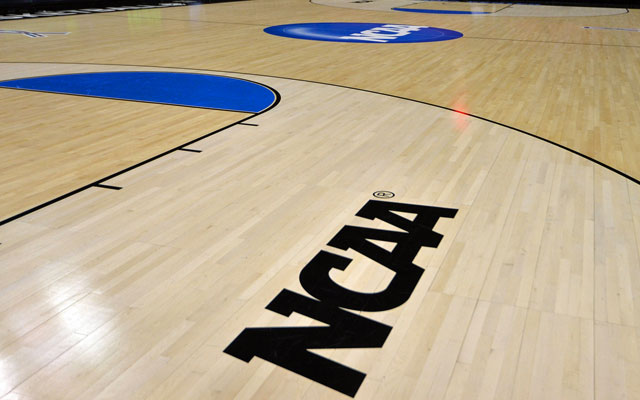
Jon Solomon
National College Football Writer
Inside College Sports: Mark Emmert's pay, NCAA legal fees increase
-

The NCAA and president Mark Emmert are rolling in dough. (USATSI)
Welcome to the debut of my Inside College Sports column. This will be a weekly notebook looking at issues occurring off the field in college sports — money, court cases, NCAA governance, health and safety, etc. Have a tip, idea or question about a certain topic? Email me at jon.solomon@cbsinteractive.com or hit me up on Twitter @JonSolomonCBS.
The costs of doing business for the NCAA continue to increase. NCAA president Mark Emmert received approximately $1.8 million in compensation during the 2013 calendar year, and the NCAA's legal fees rose 59 percent to $13.8 million, according to the association's latest federal tax return released Tuesday.
Emmert made about $100,000 more in 2013 than the previous year. He had a base salary of $1,365,298, received $201,127 in other reportable compensation, and was credited with $235,700 in retirement/deferred payment that he can receive in 2017. Emmert was credited with less money than all five major conference commissioners: Pac-12's Larry Scott ($3.5 million), Big Ten's Jim Delany ($3.4 million), Big 12's Bob Bowlsby ($2.5 million), ACC's John Swofford ($2.1 million) and SEC's Mike Slive ($2.1 million).
The NCAA's legal expenses rose to $13.8 million in 2013-14 as the association fights a number of lawsuits, up from $8.7 million the previous year. As recently as 2010-11, the legal costs were $4.1 million. The increase is because the NCAA “continues to defend its mission and core values,” NCAA spokeswoman Stacey Osburn said.
The NCAA has been a defendant in several lawsuits associated with compensating athletes, concussions and the Penn State scandal. Latham & Watkins, which has represented the NCAA in the Penn State and concussion lawsuits, received $6,457,041 as the association's highest-paid firm in 2013-14.
The higher legal costs for the fiscal year ending Aug. 31, 2014, covered the period of the Ed O'Bannon trial in June 2014. A federal judge ruled the NCAA violated antitrust laws, a decision the NCAA is appealing.
Like many coaches and athletic directors, salaries continue to increase for NCAA administrators. In 2007, the NCAA reported spending almost $6 million to compensate 14 of its highest-ranking executives. In 2013, the NCAA's 14 highest-ranking officials totaled $8.5 million. Some compensation amounts include:
• Chief operating officer Jim Isch: $1,071,086 (Isch has since left the NCAA)
• Executive vice president Donald Remy: $777,652 (25 percent increase after a promotion)
• Executive vice president Mark Lewis: $631,295 (59 percent increase after a promotion; his total pay was 36 percent higher than what his predecessor, Greg Shaheen, received in 2012 with an interim title)
• Executive vice president Bernard Franklin: $590,825 (4 percent increase)
• Vice president David Berst: $480,159 (2 percent increase)
• Chief medical officer Brian Hainline: $454,094 (first year of the new position)
• Vice president Dan Gavitt: $372,009 (first year in his job)
• Vice president Kevin Lennon: $371,851 (5 percent increase)
• Vice president Jonathan Duncan: $360,699
Duncan became the NCAA's vice president of enforcement, replacing Julie Roe Lach, who was fired in February 2013 after an external report detailed abuse of power in the NCAA's investigation of Miami. Roe Lach was credited with $402,011 in 2013. The NCAA said Roe Lach received $246,423 in severance payments during the 2013 calendar year.
NCAA revenue increased 3.6 percent to $906 million and expenses were up 6.7 percent to $898 million. The NCAA distributed $564 million to its members, representing 62 percent of the NCAA's total revenue. Osburn said new NCAA expenses included $21 million more in distributions to members; $19 million to create a reserve for health and safety programming; and $6.2 million in expanded coverage of the NCAA's catastrophic insurance program..............
